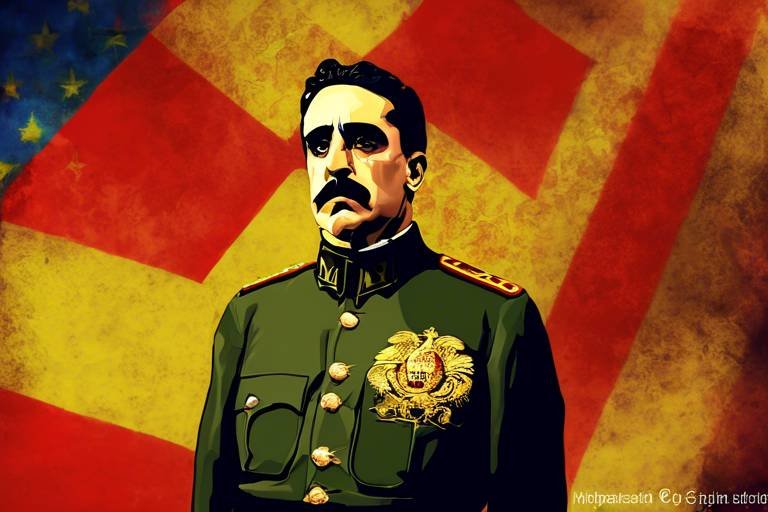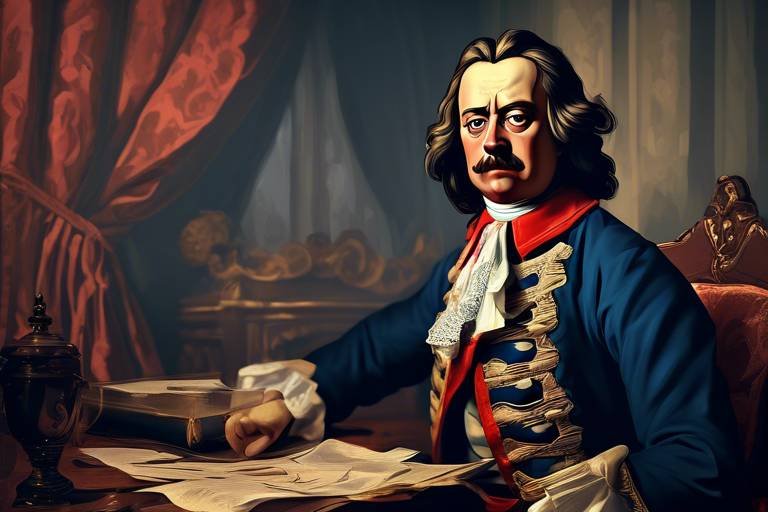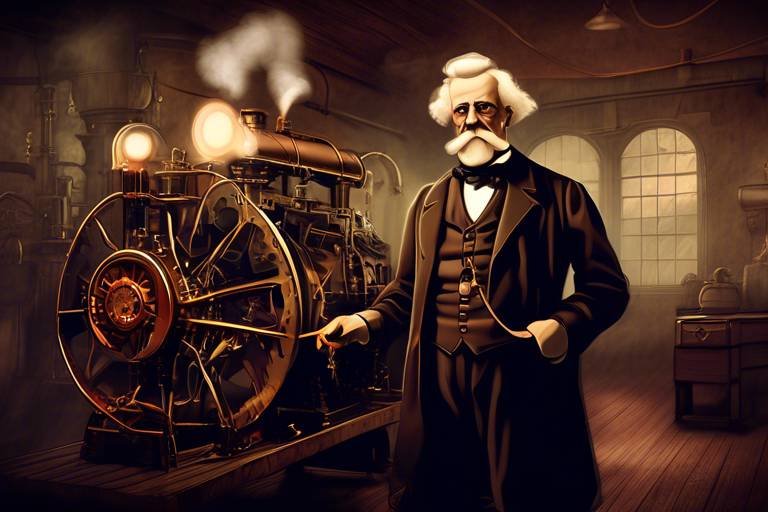Emmeline Pankhurst: The Leader of Women's Suffrage
Emmeline Pankhurst, a trailblazer in the women's suffrage movement, stood as a beacon of hope and determination for countless women striving for equality. Her unwavering commitment to the cause sparked a revolution that echoed across generations, reshaping the landscape of gender rights.

Early Life and Activism
Emmeline Pankhurst, the iconic leader of the women's suffrage movement, had a remarkable journey that shaped her into the fierce advocate for gender equality that she became. Born in Manchester, England in 1858, Pankhurst grew up in a politically active family environment that instilled in her a strong sense of social justice from an early age. Her early life experiences, including witnessing the disparities and injustices faced by working-class women, fueled her passion for activism and paved the way for her future role as a trailblazer in the fight for women's rights.
As a young woman, Emmeline Pankhurst became involved in various social causes, including the temperance movement and the campaign for women's access to higher education. However, it was her encounter with the suffragist movement that truly ignited her activist spirit. Inspired by the suffragists' dedication to securing voting rights for women, Pankhurst soon emerged as a prominent figure in the movement, advocating for equal political representation and challenging the entrenched patriarchal norms of the time.
Driven by her unwavering commitment to the cause, Emmeline Pankhurst founded the Women's Social and Political Union (WSPU) in 1903, a groundbreaking organization that would become synonymous with the militant suffrage movement. The WSPU, under Pankhurst's leadership, adopted bold and unconventional tactics to draw attention to the suffragettes' demands, including public demonstrations, heckling politicians, and even acts of civil disobedience.
Emmeline Pankhurst's militant approach to activism, while controversial, was instrumental in bringing the issue of women's suffrage to the forefront of public consciousness. Her fearless leadership and willingness to challenge the status quo inspired countless women to join the movement and demand their right to vote, despite facing harsh criticism and opposition from traditional authorities.
Throughout her activism, Emmeline Pankhurst faced numerous arrests and imprisonments for her role in the suffragette protests. Undeterred by adversity, she and her fellow suffragettes endured harsh conditions in prison, engaging in hunger strikes and other forms of resistance to protest their unjust treatment and demand recognition of their political rights.
Emmeline Pankhurst's advocacy for women's suffrage transcended national boundaries, resonating with women around the world who were fighting for their own rights and freedoms. Her tireless efforts to secure equal voting rights for women left a lasting impact on the global struggle for gender equality, inspiring generations of activists to continue the fight for justice and empowerment.

Founding of the WSPU
Emmeline Pankhurst's journey as a trailblazer for women's suffrage began with the founding of the Women's Social and Political Union (WSPU), a pivotal moment in the history of the movement. The WSPU, established in 1903 by Pankhurst and her daughters, Sylvia and Christabel, aimed to take a more militant approach to advocating for women's right to vote. This marked a significant shift from the peaceful methods previously employed by suffrage organizations.
Under Emmeline Pankhurst's bold leadership, the WSPU quickly gained attention for its radical tactics and unwavering commitment to the cause. The union's motto, "Deeds, not words," encapsulated their determination to bring about real change through action rather than rhetoric. The founding of the WSPU signaled a new chapter in the fight for women's suffrage, one characterized by daring activism and a refusal to remain silent in the face of injustice.

Militant Tactics
Emmeline Pankhurst, a fearless leader in the women's suffrage movement, was known for her bold and controversial militant tactics in the fight for gender equality. Under her guidance, the Women's Social and Political Union (WSPU) adopted unconventional methods to draw attention to the cause and challenge the status quo. Pankhurst believed in the power of **direct action** and **civil disobedience** to spark change.
One of the most notable militant tactics employed by the WSPU was **protest**, often in the form of **public demonstrations** and **rallies**. These events aimed to disrupt the norm and demand attention for the suffragettes' demands. Pankhurst and her followers were not afraid to make their voices heard, even if it meant facing **criticism** and **opposition** from traditional authorities.
Additionally, **hunger strikes** became a common form of protest among suffragettes, including Pankhurst herself. By **sacrificing their own well-being**, these women highlighted the urgency and importance of their cause, attracting both **sympathy** and **controversy**. The willingness to endure **physical hardship** for their beliefs showcased the unwavering dedication of the suffragettes.
Pankhurst's militant tactics also extended to **property damage** and **acts of civil disobedience**. **Smashing windows**, **defacing public property**, and **disrupting official events** were all strategies employed by the WSPU to challenge the existing power structures and demand **political recognition** for women's rights.
Despite facing **arrest**, **imprisonment**, and **harsh treatment** from authorities, Emmeline Pankhurst and her followers remained steadfast in their commitment to the cause. Their **courage** and **determination** in the face of adversity demonstrated the **strength** of their convictions and the urgency of the fight for **voting rights**.

Imprisonment and Resistance
Emmeline Pankhurst and her fellow suffragettes faced numerous challenges during their fight for women's right to vote. Imprisonment was a common consequence of their activism, as they engaged in protests and civil disobedience to demand equality. Pankhurst herself was arrested multiple times for her role in the suffrage movement, enduring harsh conditions and mistreatment in prison.
Despite the harsh realities of imprisonment, Pankhurst and the suffragettes displayed remarkable resilience and resistance. They refused to be silenced or deterred, using their time behind bars as an opportunity to further amplify their message. Hunger strikes became a powerful form of protest, drawing attention to the suffragettes' cause and highlighting the injustices they faced.
One of the most iconic moments of resistance was the "Cat and Mouse Act," a law designed to weaken the suffragette movement by releasing hunger-striking prisoners until they regained strength, only to rearrest them later. This cycle of imprisonment and release symbolized the ongoing struggle and determination of Pankhurst and her comrades.
Emmeline Pankhurst's leadership during times of imprisonment exemplified her unwavering dedication to the cause of women's suffrage. Her courage in the face of adversity inspired not only her contemporaries but also future generations to continue the fight for gender equality.

Global Impact
Emmeline Pankhurst's advocacy for women's suffrage transcended national borders, leaving a profound impact on the global stage. Her unwavering commitment to equality resonated far beyond the shores of Britain, inspiring women and men around the world to stand up for their rights. Pankhurst's bold and militant tactics, while controversial, sparked a wave of activism that reverberated across continents, igniting a fire for change in the hearts of many.
As news of the suffragettes' struggles and triumphs spread internationally, Pankhurst's name became synonymous with courage and resilience. Her leadership not only galvanized the suffrage movement in the UK but also served as a beacon of hope for those fighting for gender equality in distant lands. From the streets of London to the halls of power in Washington, the echoes of Pankhurst's calls for justice were heard loud and clear.
The ripple effect of Pankhurst's work reached countries as far-flung as Australia, Canada, and New Zealand, where women were also demanding the right to vote. The seeds of empowerment planted by Pankhurst took root in diverse cultures and societies, inspiring women of all backgrounds to raise their voices and demand recognition and representation. The global impact of Pankhurst's advocacy cannot be overstated, as it laid the foundation for future generations of activists to continue the fight for equality.

Legacy and Commemoration
Emmeline Pankhurst's legacy as a pioneering figure in the women's suffrage movement is deeply rooted in her unwavering dedication to achieving gender equality. Her fearless leadership and tireless advocacy continue to inspire generations of activists worldwide. Pankhurst's legacy is not just a historical footnote but a living testament to the power of perseverance and the impact of individuals in shaping societal change.
Commemorating Emmeline Pankhurst's contributions is essential in recognizing the progress made in the fight for women's rights. Through various initiatives and memorials, her legacy is honored and celebrated, ensuring that her pioneering spirit and commitment to equality are remembered and revered. Commemoration serves as a reminder of the struggles faced by suffragettes and the importance of continuing the work towards full gender parity.
One significant way in which Emmeline Pankhurst is commemorated is through educational programs and exhibitions that highlight her life and achievements. These initiatives not only educate the public about her role in the suffrage movement but also inspire individuals to take action and advocate for gender equality in their own communities. By keeping her memory alive, we ensure that her impact is never forgotten.

Modern Relevance
Emmeline Pankhurst's work and legacy hold significant modern relevance in today's society. Her fearless advocacy for women's suffrage and relentless pursuit of gender equality continue to inspire contemporary activism and advocacy efforts worldwide. Pankhurst's unwavering commitment to challenging societal norms and fighting for women's rights serves as a powerful reminder of the ongoing struggle for gender equality in the present day.
Moreover, Pankhurst's emphasis on unity, solidarity, and collective action remains a guiding principle for many current social justice movements. Her leadership style, characterized by boldness and determination, sets a precedent for individuals and organizations striving to effect positive change in the face of adversity.
As society grapples with issues of gender inequality, discrimination, and systemic barriers to women's advancement, Emmeline Pankhurst's legacy offers a beacon of hope and a call to action. Her story serves as a testament to the transformative power of grassroots activism and the enduring impact of individuals who dare to challenge the status quo in pursuit of a more just and equitable world.

Challenges and Achievements
Emmeline Pankhurst and the suffragettes faced numerous challenges in their fight for women's voting rights. The suffragettes were met with fierce opposition from authorities and society, enduring arrests, imprisonment, and public backlash. Pankhurst herself was arrested multiple times for her activism, enduring harsh treatment and even force-feeding during hunger strikes in prison. These challenges tested their resolve and determination, but they remained steadfast in their pursuit of equality.
Despite the adversities they faced, Emmeline Pankhurst and the suffragettes achieved remarkable milestones in the battle for women's suffrage. Their relentless advocacy and activism eventually led to the Representation of the People Act in 1918, granting voting rights to certain women in the UK. This historic achievement marked a significant victory in the long struggle for gender equality and paved the way for further progress in women's rights.
Moreover, the suffragettes' efforts sparked a global movement for women's suffrage, inspiring women around the world to demand equal rights and representation. Emmeline Pankhurst's leadership and courage in the face of adversity set a powerful example for future generations of activists, leaving a lasting impact on the fight for gender equality.
Frequently Asked Questions
- Who was Emmeline Pankhurst?
Emmeline Pankhurst was a key figure in the women's suffrage movement in the late 19th and early 20th centuries. She was a British political activist and leader who fought tirelessly for women's right to vote.
- What was the Women's Social and Political Union (WSPU)?
The WSPU was a militant women's suffrage organization founded by Emmeline Pankhurst in 1903. It was known for its radical tactics and played a significant role in the suffrage movement.
- What were some of the militant tactics used by the WSPU?
The WSPU under Pankhurst's leadership employed tactics such as protests, hunger strikes, and civil disobedience to draw attention to the cause of women's suffrage and put pressure on the government to grant women the right to vote.
- What is Emmeline Pankhurst's legacy?
Emmeline Pankhurst's legacy includes her pivotal role in securing voting rights for women in the UK and her inspiration of feminist movements worldwide. Her work continues to be celebrated and remembered for its impact on gender equality.



















